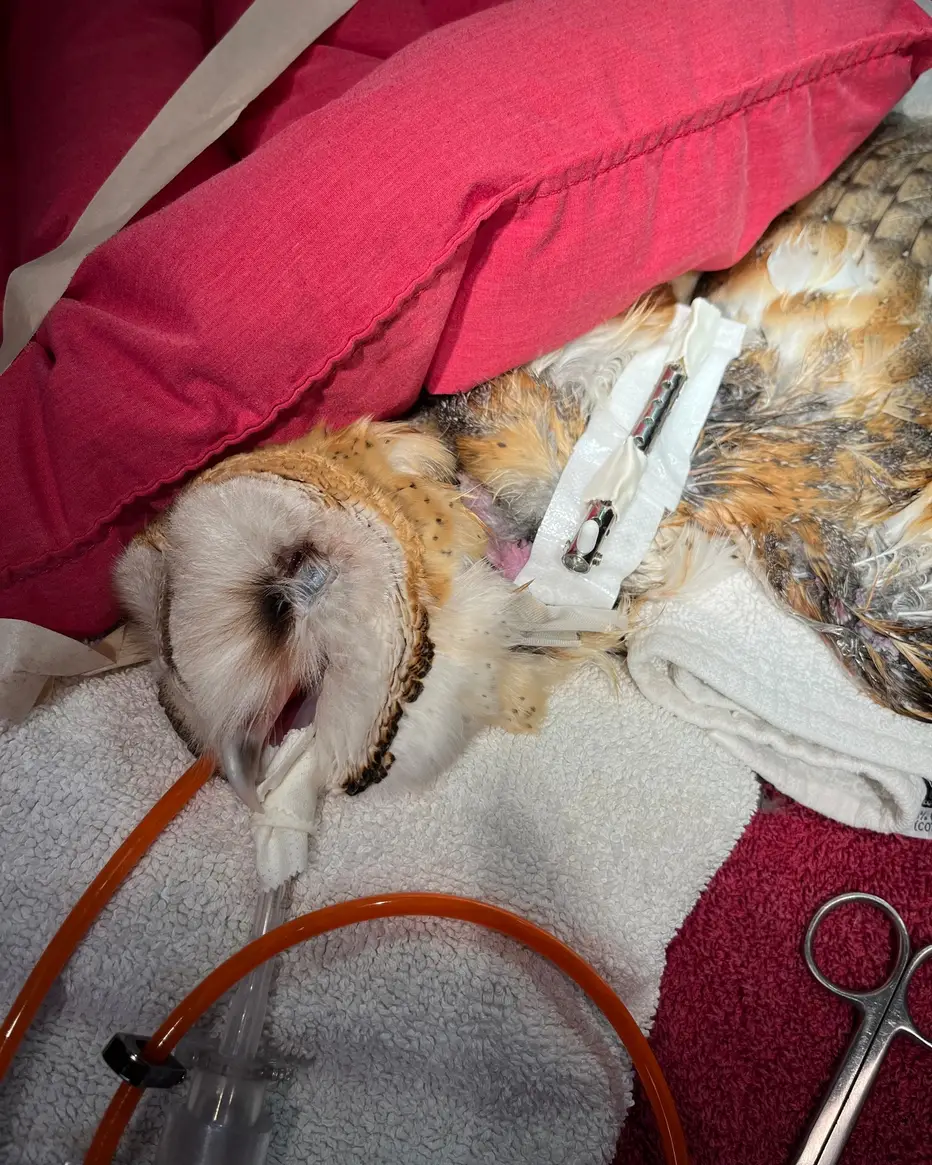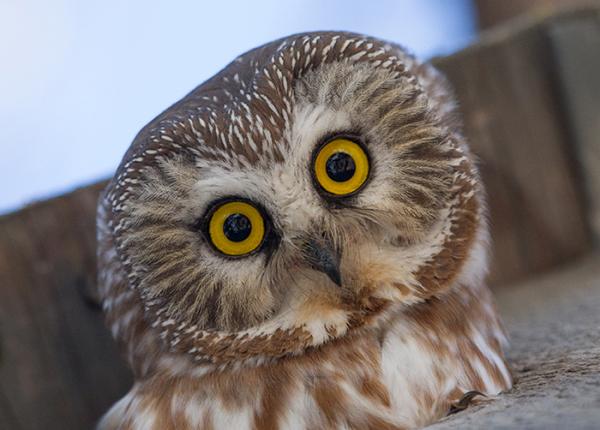From New Mexico Wildlife Center
Last weekend, our hospital admitted an American Barn Owl who had been found on the ground with an injured wing. The rescuer, a falconer, correctly identified the injury as a fractured humerus and transported the owl to NMWC for care. When the owl was admitted to our hospital, our team took x-rays, started the owl on medications, cleaned some lacerations on the wing, and wrapped the fractured wing to keep it stabilized until surgery.
As you might be able to tell from the x-ray we took when the owl arrived, the fracture is an oblique one; that is, the break is at an angle, which means a substantial length of bone is affected. During surgery, the bone was stabilized with metal pins as well as dissolvable sutures to hold the angled bone ends together.
The last photo [the one I used as the title image] in this set was taken just a few days after surgery, and as you can see, American Barn Owl 24-750 is alert and appropriately defensive (spreading their wings and lowering their head is part of how this species says “go away”) toward humans! The fracture, as well as the lacerations near the fracture site, are beginning to heal. We are hopeful that this very feisty (and very loud!) patient will continue to make good progress toward getting back out into the wild.


